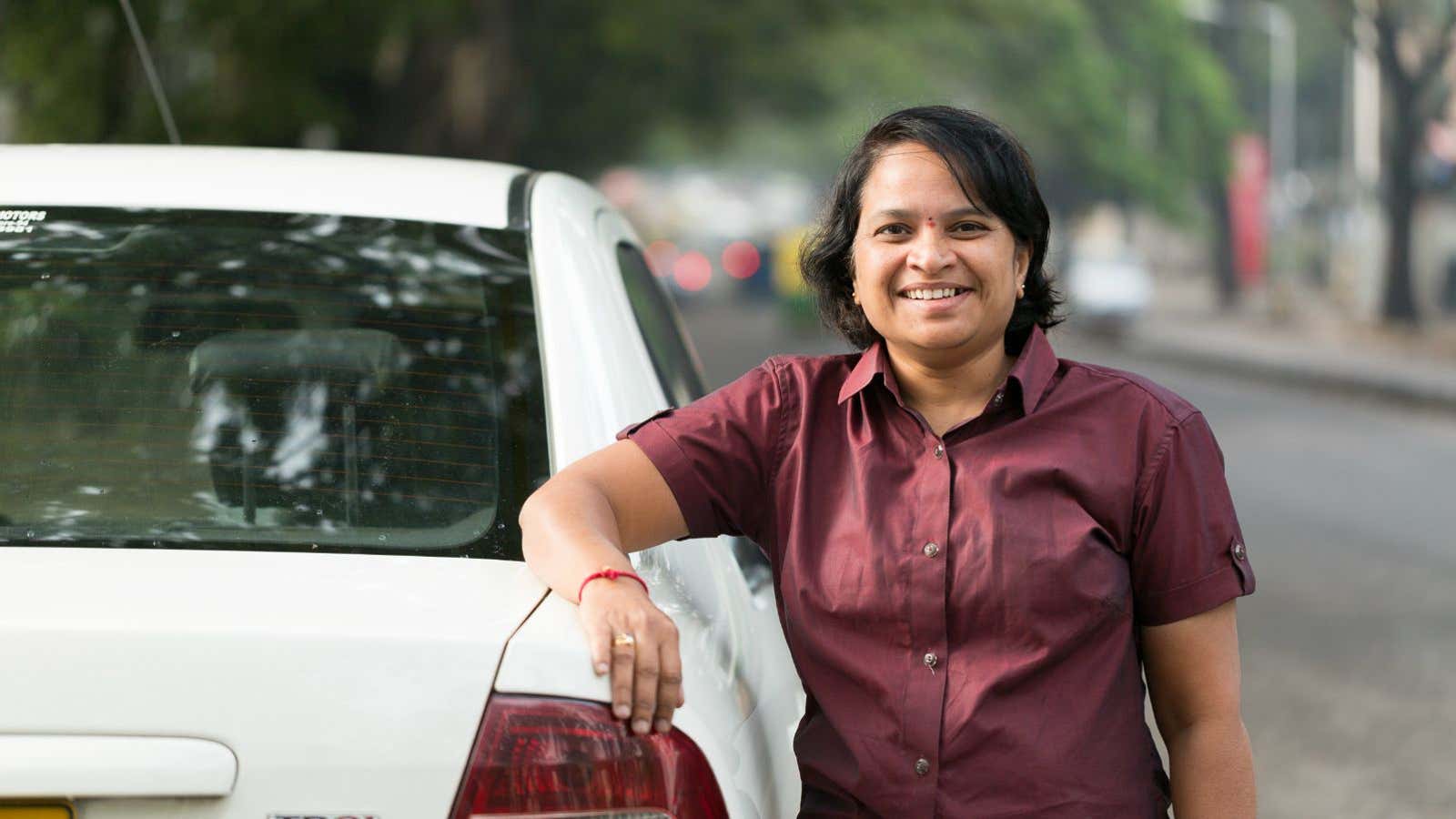Bharathi Veerath, who achieved minor celebrity status in India as the country’s first female Uber driver, was found dead in her Bengaluru home this week. The cause has not yet been confirmed but local reports say the 40-year-old’s death is being treated as a suicide.
Veerath began driving for Uber in October 2013. Her unusual career choice in a heavily male-dominated profession attracted headlines in India, where roads are not thought of as being particularly safe for women, and where dealing with chauvinistic male passengers could be challenging.
In a March 2015 interview with Quartz, Veerath talked about how reactions to her work had evolved since she started in the job.
The male drivers wouldn’t come up and say anything. But I would get stares from them. … It’s their [regressive] mindset, but that cannot really stop me from carrying on with my profession. Eventually, they got used to seeing me around, so they wouldn’t look.
On June 27, Veerath was found hanged in her home, where she lived alone. No suicide note was found, but family members have said that she was dealing with depression, triggered by her parents’ deaths a few years ago.
“We are shocked and saddened to learn of the tragic death of Bharathi Veerath. Bharathi was a positive person and one of our top women driver partners. She was an inspiration to many driver partners and riders. Our thoughts are with her family,” an Uber India spokesperson said in a statement.
Prior to becoming a taxi driver, Veerath was a volunteer for a Bengaluru-based NGO that does work on behalf of the LGBT community, The Hindu newspaper reported.
She was a “spunky and cheerful woman,” Pankaj Mishra, editor-in-chief and CEO of news website Factor Daily, wrote in a post on the site. He had taken a ride with Veerath in November 2013, a month after she had started driving for Uber. “She was full of exuberance and positive energy, the kind of stuff you see in a young kid on the first day of the job,” Mishra wrote.
Asked once about her unusual choice of career, Veerath highlighted how gender statistics in most professions in India were skewed toward men. “So each profession will then become a problem for a woman because there will mostly be more men than them. I don’t think women should think of it that way,” she said in broken Hindi during the phone interview.
Many of her passengers seemed equally enlightened in their thinking.
